An Interview with Lola Frichet, the #1RiffADay Winner
French musician Lola Frichet won over our audience with her incredible videos and bass riffs during the #1RiffADay challenge.
Lola Frichet is a 25-year-old French bassist who grew up in the 11th arrondissement of Paris. She attended the music conservatory when she was seven years old to learn classical guitar, and eventually picked up the electric guitar, followed by the bass, and has been playing in rock bands since she was 11 years old.
Currently, Frichet plays bass and tours with metal band Pogo Car Crash Control, which she joined four years ago. And when she’s not shredding metal riffs, she’s on post-rock ones with COSSE, an English-singing band she joined last year on bass.
Frichet initially took part in the #1RiffADay challenge to spice up a tourless month of January, but she went on to become one of the top 10 finalists and eventually the winner of the challenge with her incredible bass riffs. Frichet spoke with She Shreds from her home in Paris about women musicians in France, her experience with #1RiffADay, and her all-time passion—music.
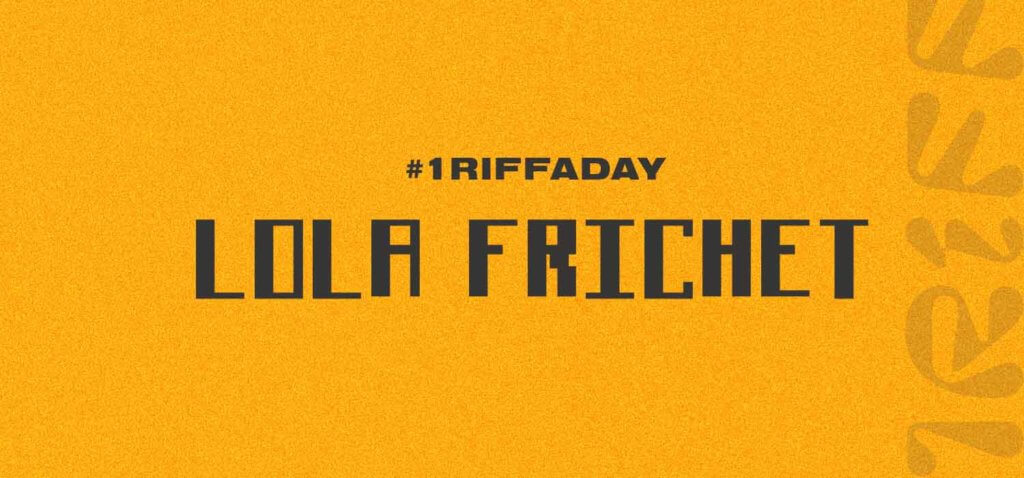
When did you start playing guitar?
I knew I wanted to play guitar around three or four. There was this guitar shop in front of my elementary school and the shopkeeper—he kinda changed my life—told me, “You know what, you’re very young! Go to the conservatory, you’ll learn classical guitar.” I followed his advice and went there when I was six, but they told me my hands were too small, which is just stupid when you see all those instruments today, because there are just so many different sizes.
I had to wait a year, then another year stuffing myself with music theory because when you join the conservatory, you have to spend a whole year [learning] music theory, then you start learning how to play an instrument. So I started the guitar at the age of seven. Then I joined rock bands when I was 11 and never stopped playing the electric guitar or bass ever since.
I was in a middle and high school with “classes à horaires aménagées musique” (CHAM), classes with timetables adapted to kids who want to become professional musicians. You have normal classes during one half of the day, then the other half you get to practice playing your instrument. I was part of this community of musicians, actors, dancers, athletes…
After graduating from high school, I studied history at Sorbonne University, which had nothing to do with music. My parents told me that I could pursue a career in music, provided I had a bachelor in a subject of my own choice, because you never know. I didn’t like going to university, I hated that period in my life. I had to stop all of my bands because I didn’t have time to play music anymore. After that, I re-took classes at the music conservatory and joined Pogo Car Crash Control. Then the tour started and everything went really quickly…
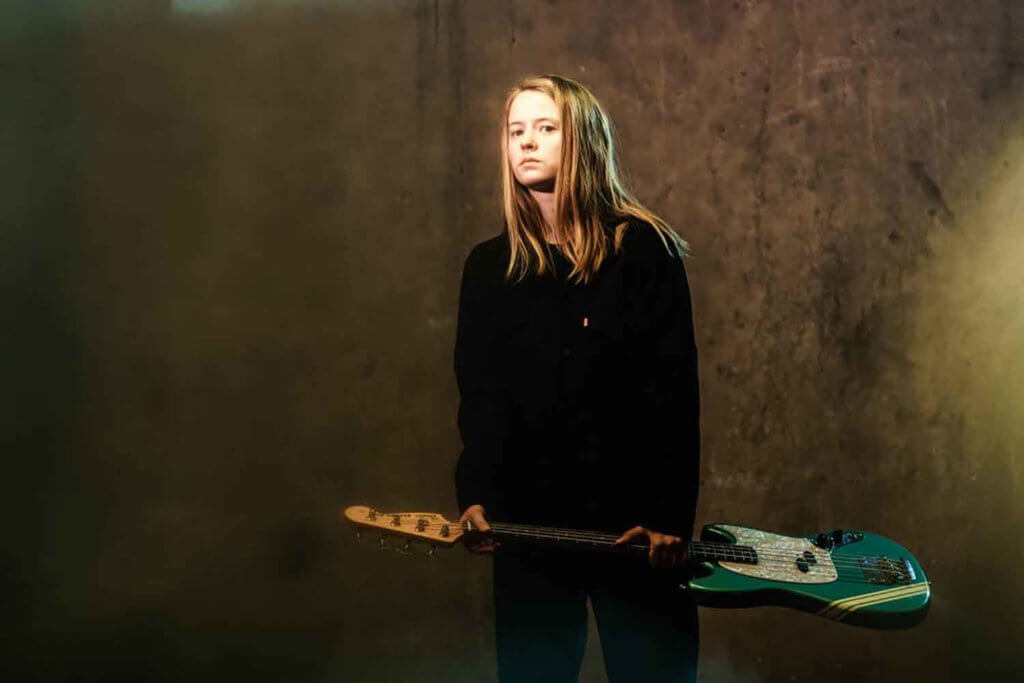
How did you find out about #1RiffADay?
Thanks to you, since you contacted me [previously] for an interview with She Shreds. When I’m offered an interview, I always like to check out the media beforehand. There are things in She Shreds that fully meet the expectations [of any musician]; it’s not just women playing the guitar.
The month of December was terrible for me. It was a bit of a music break. Tour wouldn’t resume for a few months, and in January I had only one concert. It was really a coincidence that She Shreds started the #1RiffADay challenge [then].
With the bass, you’re in a position where you are not often highlighted in a mix or in a concert. It’s more about supporting the other members, even if you’re essential to the band, so [#1RiffADay] gave me more exposure. I told myself that I was going to do it alone, with just the bass and the drums—very sleek. That way people will understand what the electric bass really is like and get to see my writing skills.
What was the #1RiffADay experience like for you?
I was putting myself under a lot of pressure; I wanted to do things right. I set the standards high, that way it wasn’t just about presenting one melody but several melodies with sequences, like 50-second mini songs. Some days were really tough. Roughly speaking, I’d say it took me about two hours of work a day. I had to restart every time I couldn’t get the bass part to be in sync with the drum part during the video editing. That was excruciating. I didn’t plan anything in advance, it was really freestyle mode.
And everyone was just so welcoming! What touched me at the beginning was the fact that there was a collective effort. I consequently started following a lot of guitarists from Asia, South America, Spain… It felt like I was part of a super international community. In the end, we were all doing something very thrilling. It was like we were all working in the same company for a month—it was telework!
What was your reaction when you saw that you were one of the #1RiffADay finalists, and then the winner of the challenge?
It really meant a lot to me [to be a finalist]. The goal is to gain more visibility as women and artists. When it was over, I was like, “Ah… one less effort in my life!” [Laughs.] Then I saw I had to vote and I realized that it was possible to win; another phase had started.
A few days later I was on a farm, filming a music video [with Pogo Car Crash Control] in the Parisian suburbs with cows. My phone was almost out of battery when we had finished shooting. We were putting the stuff away and Felipe Sierra [COSSE’s guitarist] called me and shouted, “You got it! You won!” Right after that my phone died because it ran out of battery. It was all so dramatic. I screamed; I was so happy.
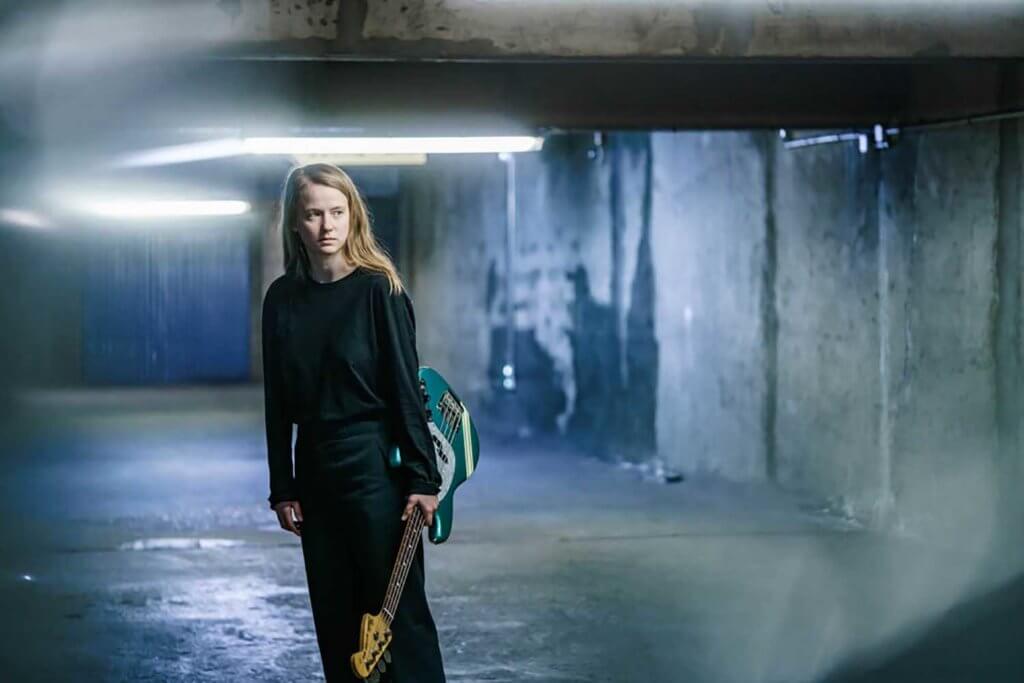
Do people often underline the fact that you are a woman in a band with only guys —and more specifically, in a metal band full of guys?
When I arrive at a concert venue, I’m immediately asked if I am the singer. I love that, because I don’t sing on stage. Everyone’s like, “She should sing!” but no: why should women always sing? People always want them to play either the piano, the violin, or be at the vocals—that’s not gonna happen! Women can just play the guitar and voilà.
When it comes to metal music, there are so few women. You feel really lonely out there. Sometimes, at festivals with Pogo, I’m the only woman on stage during an entire day— cross that, the entire festival. Sure, there are women technicians, stage managers, producers… but on stage, as a musician, there are very few.
I want this kind of balance, and at the same time I really have the ambition to give more visibility to women like me. Sometimes moms tell me that they want their daughter to be like me. There are girls who come to thank me for what I do, and others who would be like, “Damn, you have the balls to do such a thing!” and I am like, “Well no! Precisely the contrary…” [Laughs].
How does the French audience react to a woman on stage?
In France, there’s a very poor representation of women musicians in general. I’m talking about current music, because in classical music it’s starting to change in orchestras. But on stage, there is either, “There is a girl in your band—interesting” or it’s artists who want girl-only bands… It’s still based a lot on gender. You will never, or very rarely, see a woman who plays rhythms on the guitar or plays the synth without singing.
Don’t even mention the drums…
The drums are really the most neglected instrument when it comes to women’s representation.
It also comes with a huge package of stereotypes.
People often say that [women drummers] don’t hit strong enough… From time to time, people tell me that I play “like a man.” I just get so offended. It even became an inside joke on Pogo tour: “What do you mean I play like a man? I play bass—what were you expecting? That I would caress the strings?” [Laughs.]
Have you ever played elsewhere than France?
I was in this punk band in middle school called Hepatite-X and we played in Germany. With Pogo, we made it to Canada, the Canary Islands—where we played in bars only for three days—and a lot of French-speaking countries, like Switzerland and Belgium.
Is there a difference between how women musicians are treated in France compared to other countries you have been to?
Treated—that I don’t know. But perceived, yes. In the US you see lots of women on guitars and drums. There are even bands where there’s just a guy singing and girls playing behind, and I think that’s great. When they come to France, nobody ever thinks it was done on purpose to have a girl on the drums or on the guitar—you just think it’s a band. If I see it like that, why am I constantly referred to the fact that I’m a woman on stage? That, I think, is the strength of the US. There’s a music culture, at least in today’s music, which is stronger than in Europe. Maybe it’s a little different in the UK, but for sure in France.
French people have so many codes. We lack musicians and we get too worked up when there are women on stage… I’m just a girl who plays music. People tell themselves that it is original, when it’s been happening for years.
Being a musician is a job; it’s a passion. You never ask yourself whether or not you would look good in the band. What I felt personally in the music industry was that “she will make it look well” thing. The problem with the industry is that it always sees the girl as a visual before her own function as a musician, whether she fits the job or not. It’s a selling point.
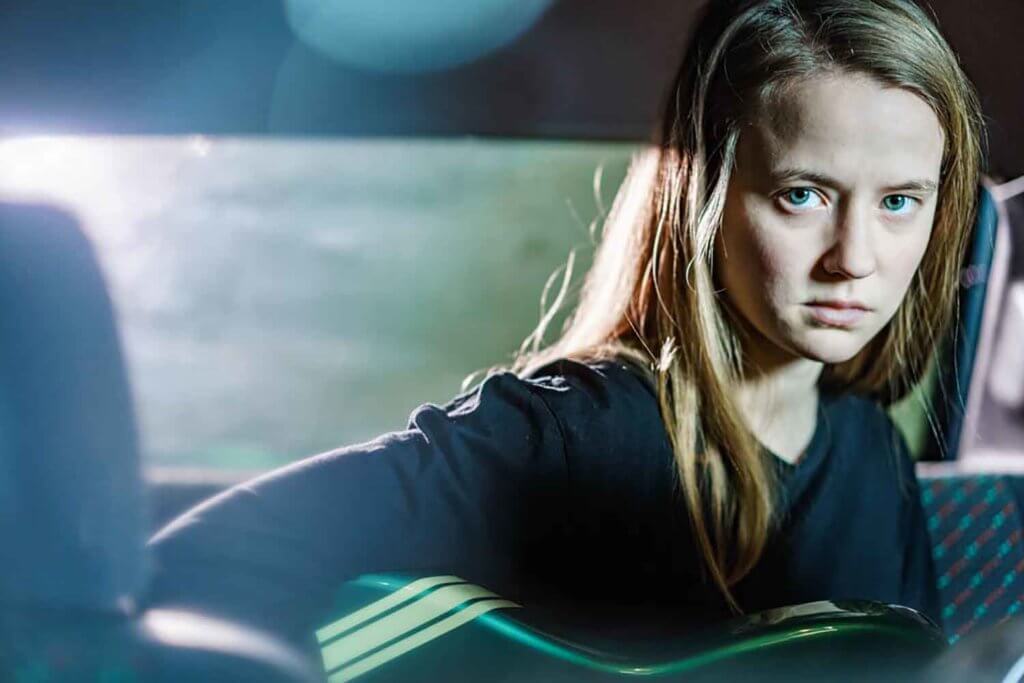
Who are you currently listening to?
Alabama Shakes, for the groovy side. It’s amazing soul music. I also have a huge crush on a Belgian Flemish band called Brutus, a trio with a girl on drums and vocals. It’s just so amazing. I would describe their music as “peaceful-violent.” For metal, I would say Code Orange, a really core metal band with an excellent guitarist, Reba Meyers. She plays so well and she represents exactly what I hope to represent in a metal band: the girl, with no labels. And lastly, Marika Hackman. She’s just so good. She shows clear activism in her lyrics and a cool dark humor. She really dares to say what she thinks. I find her so stylish—plus she plays a Mustang!
Any plans for the future?
I would like to be involved in tours or studio album recordings. My three plans for the future would be: Firstly, working on a personal project. The #1RiffADay challenge proved I could do things entirely solo. Even if it was just bass and drums, there are a lot of writing parameters that are interesting to explore alone, because I’ve always done it as a band. Secondly, to work on different music projects, even if it’s pop music, rap… It nurtures my creativity. I love challenging myself. Thirdly, arranging for other artists. I love bringing an artistic vision to someone else’s universe.
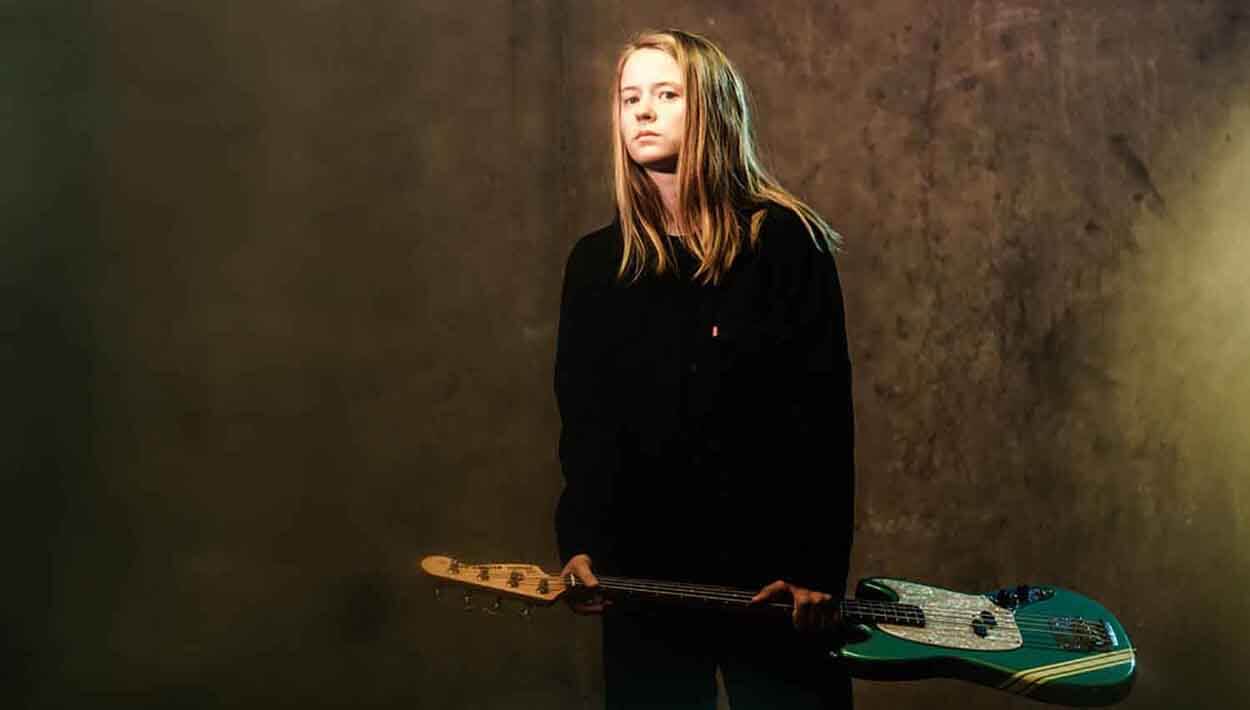

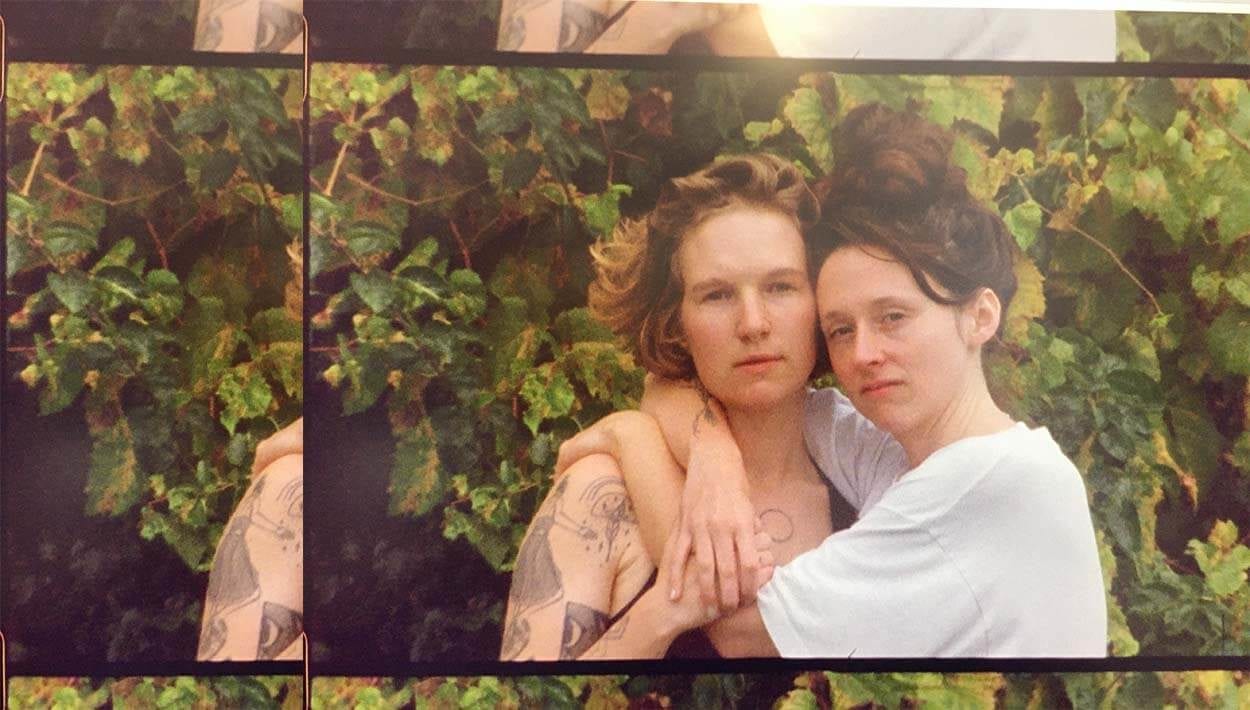
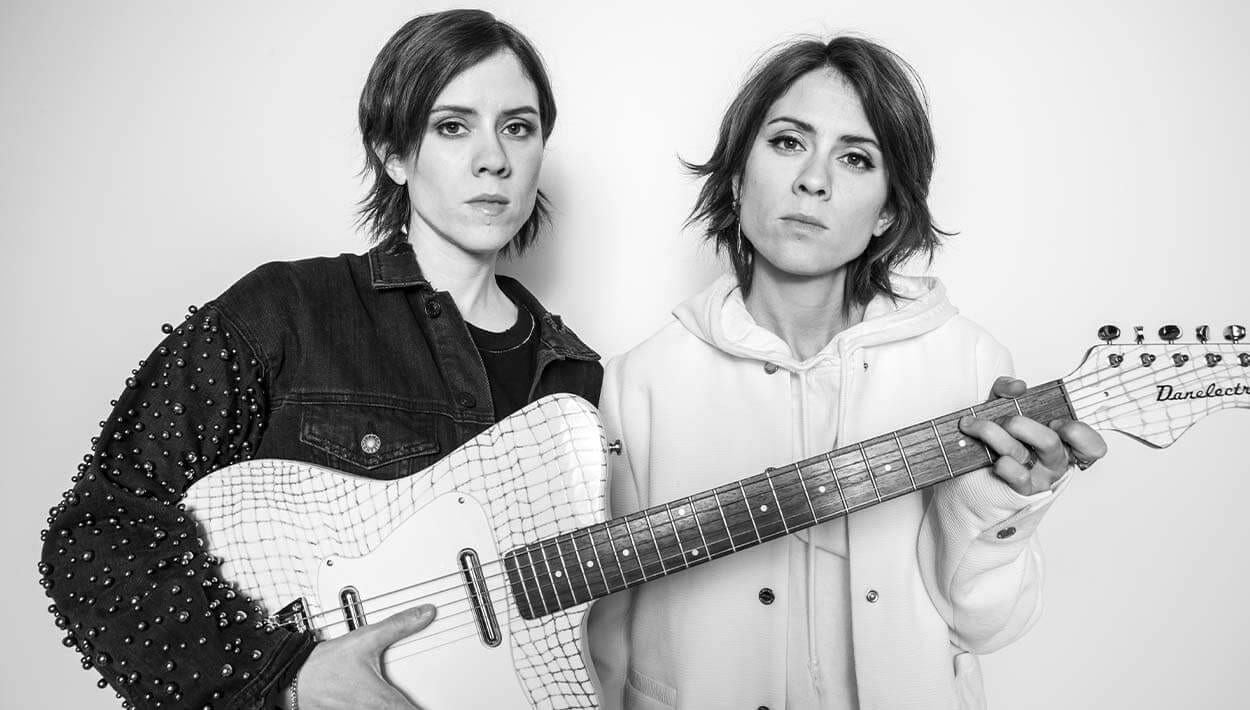
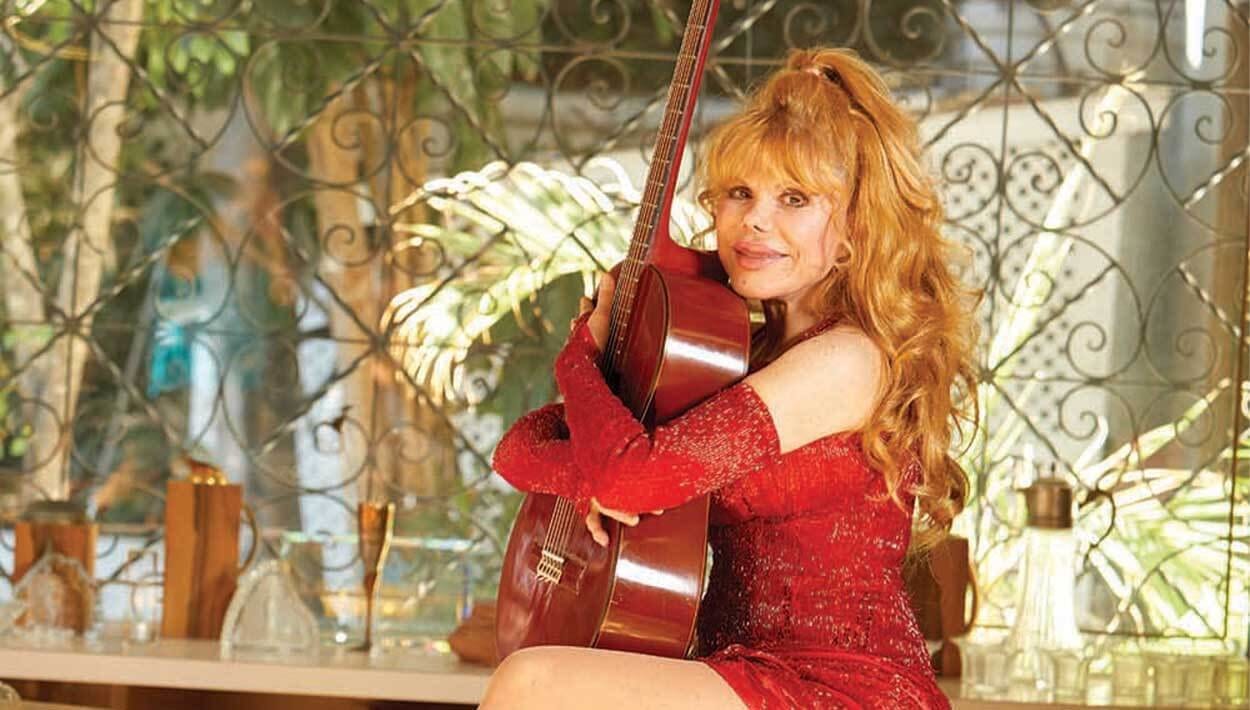
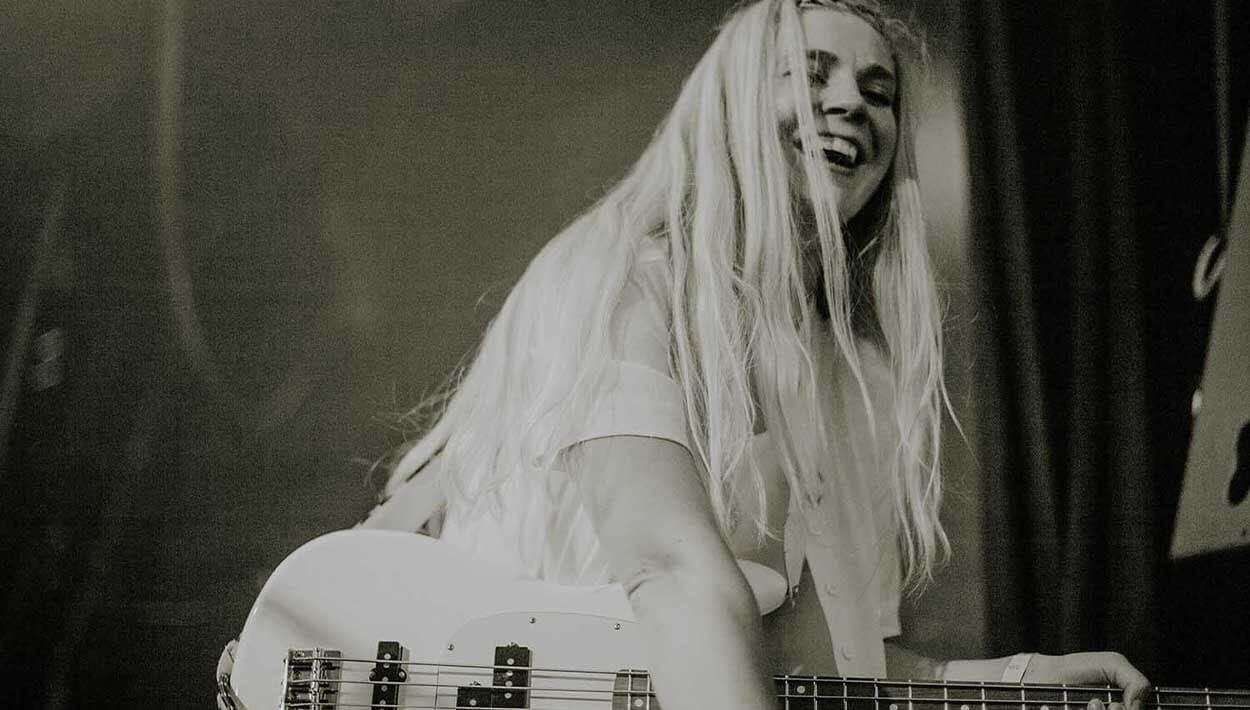
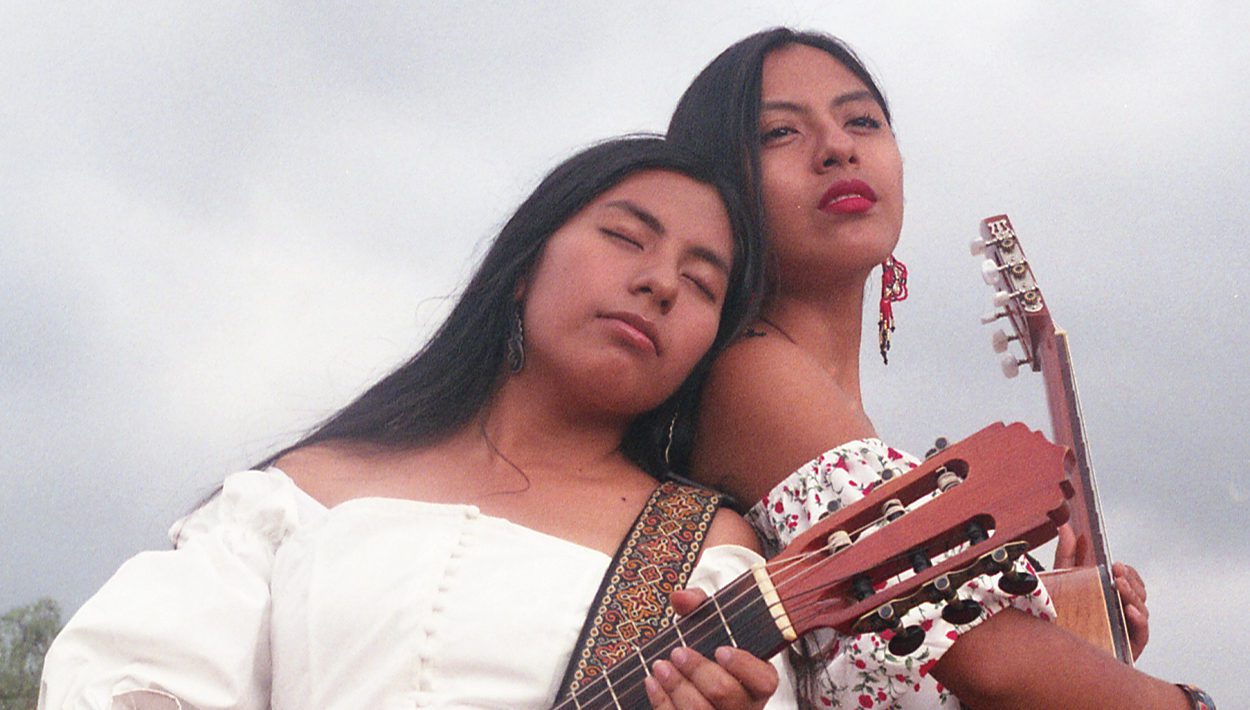
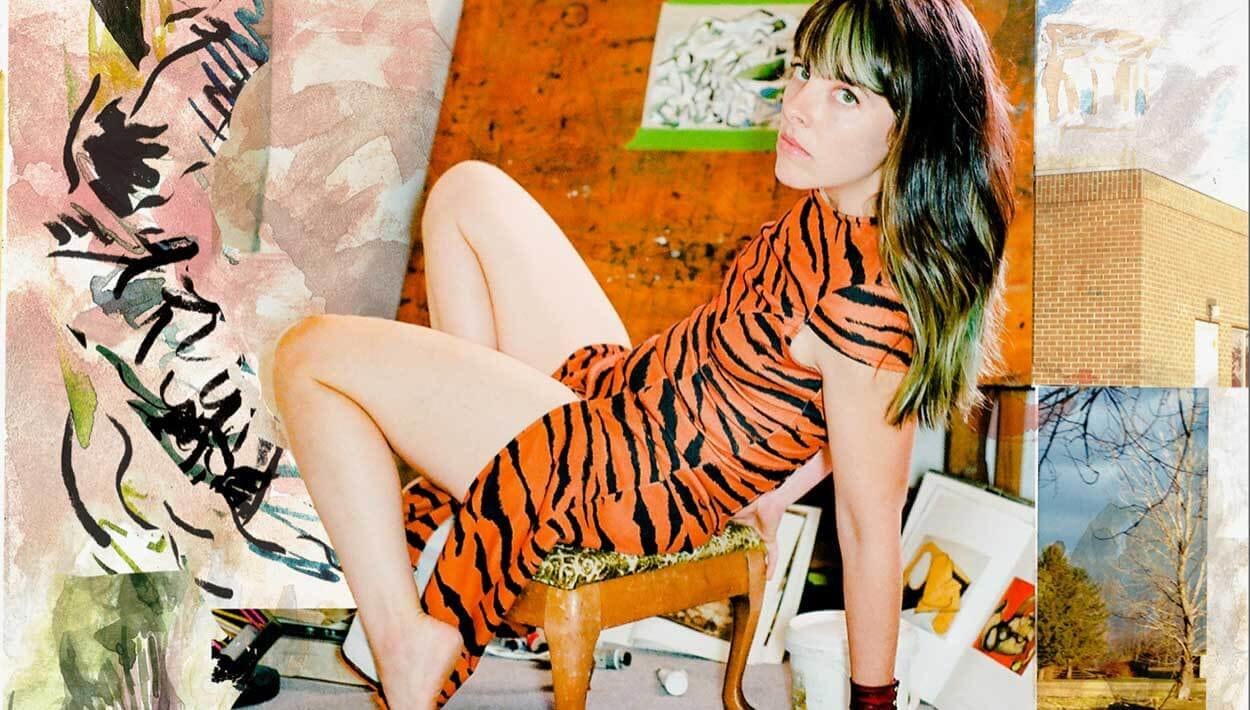
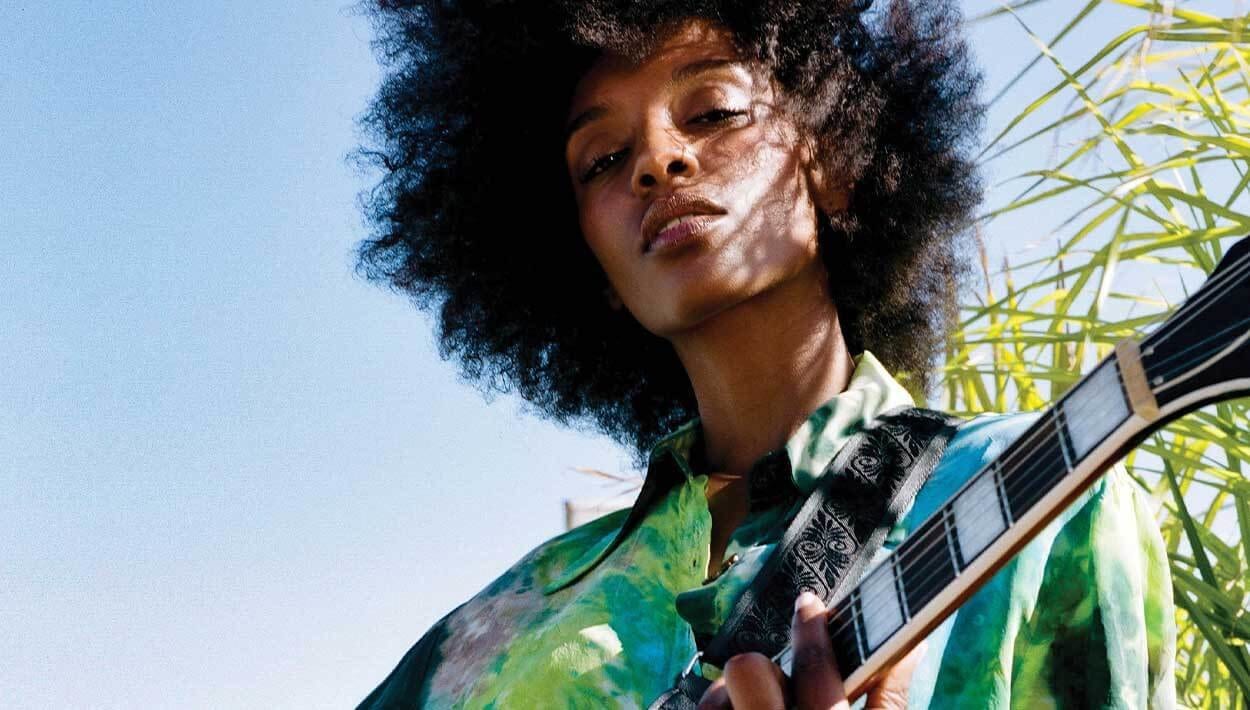
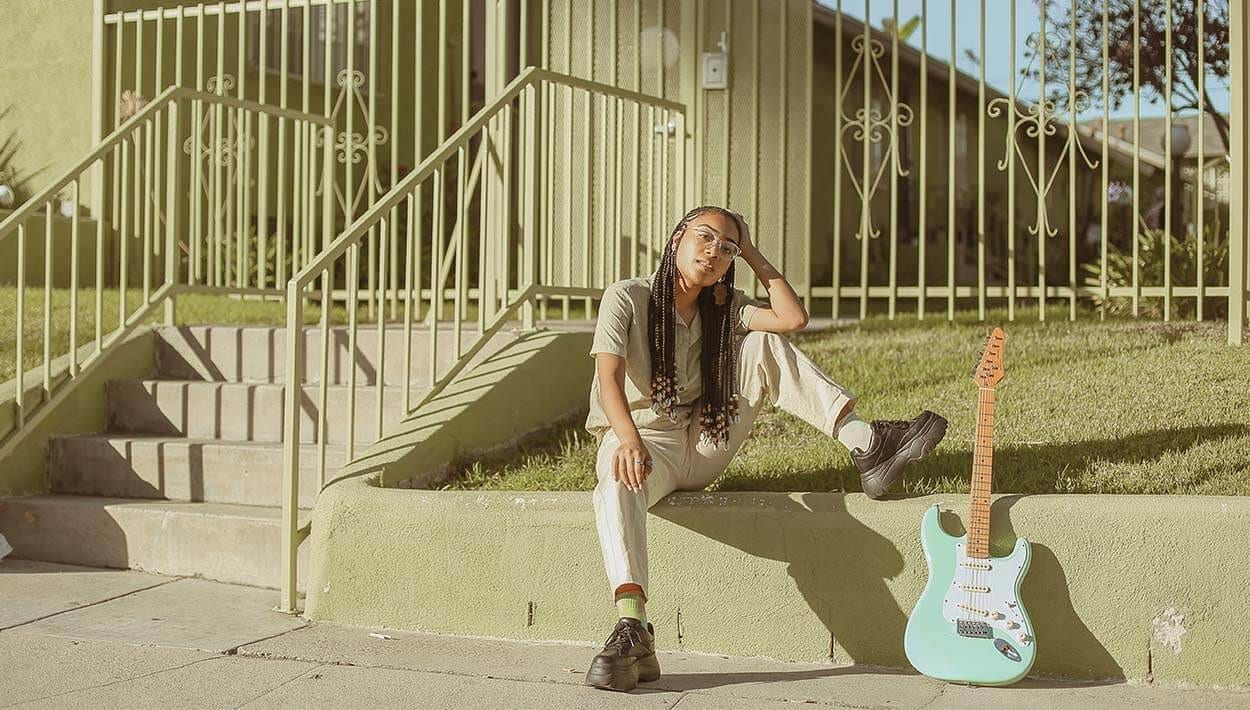
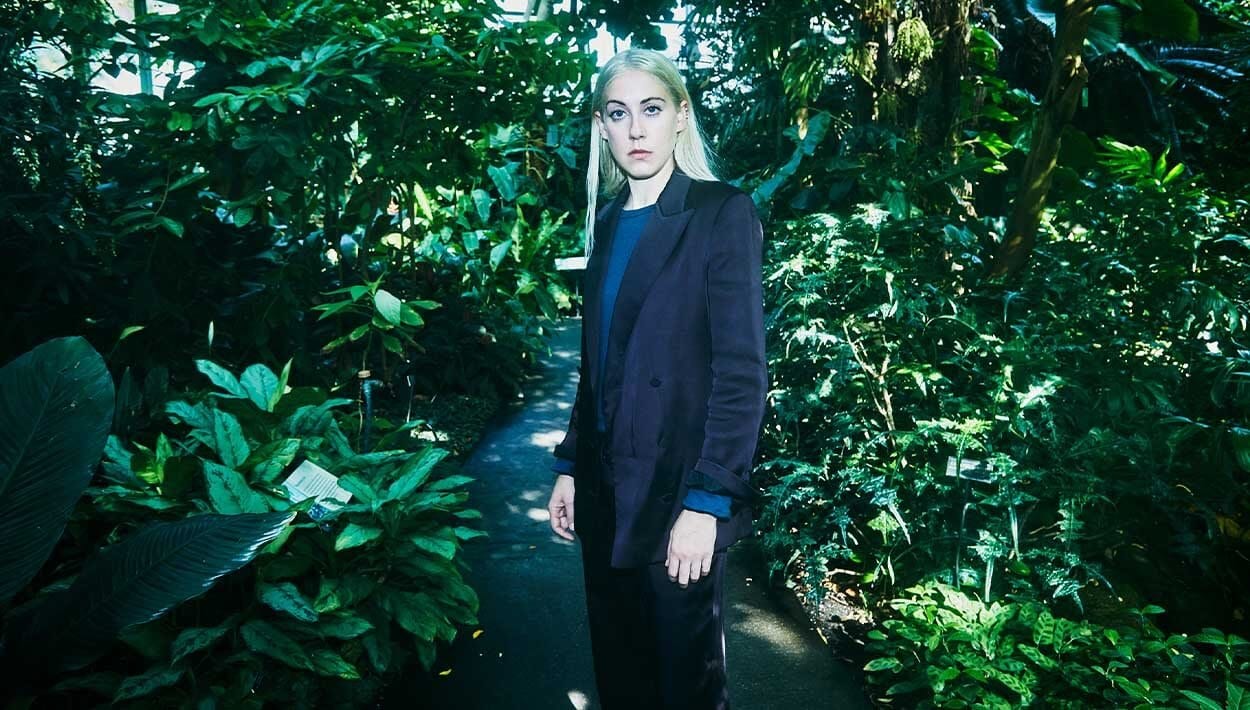
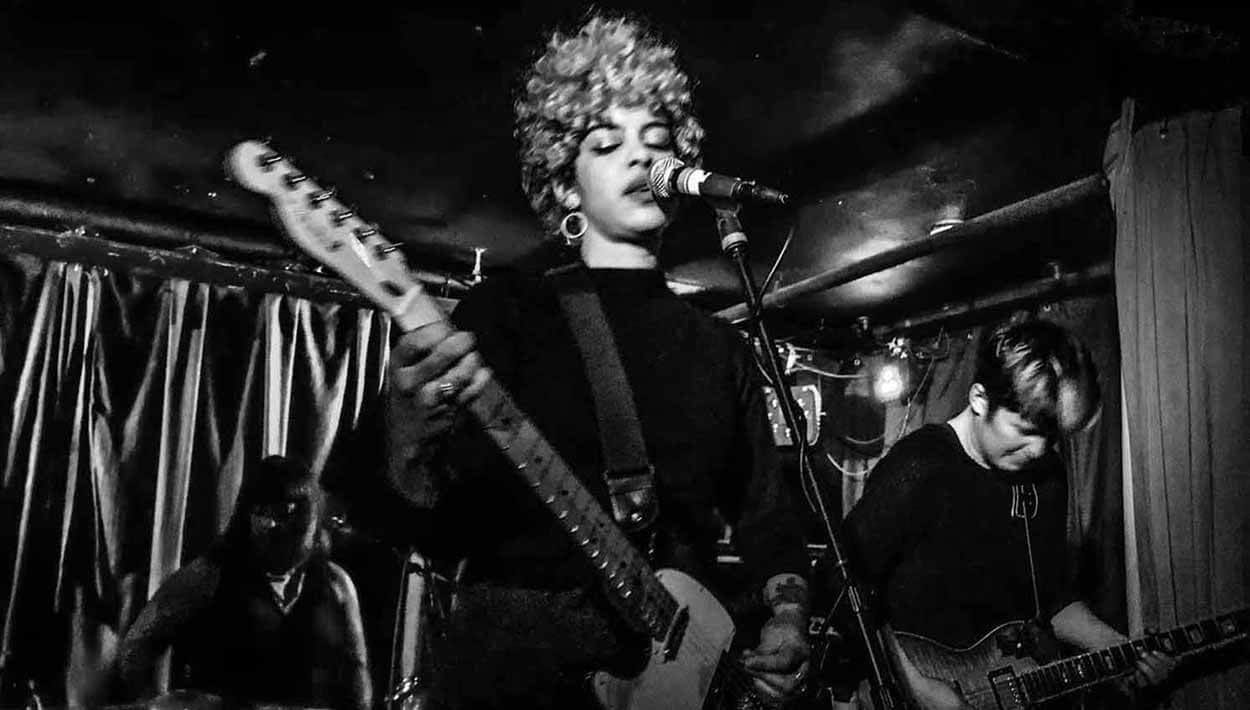


Comments
❤️
Comment by Fred on March 30, 2020 at 12:33 pmThanks for the interview, it was very interesting. In turn, I would like to share with you a site that I accidentally found. I was looking for information about the character of the Greek mythology Odyssey, since I am very interested in his life, and came across a site that has a lot of high-quality essays about the Odyssey https://supremestudy.com/odysseus, and most importantly, they are free! It seems there are many more other essays on other topics, I think that everyone can find there something for themselves. Good luck!
Comment by Allen Sweatt on June 15, 2021 at 7:44 amThanks for the interview, it was very interesting. In turn, I would like to share with you a site that I accidentally found. I was looking for information about the character of the Greek mythology Odyssey, since I am very interested in his life, and came across a site that has a lot of high-quality essays about the Odyssey, and most importantly, they are free! It seems there are many more other essays on other topics, I think that everyone can find there something for themselves. Good luck!
Comment by Tracy Lafreniere on June 15, 2021 at 7:45 amI sincerely hope that more people would take advantage of the excellent and important forum that you share.
Comment by cuphead on April 26, 2023 at 2:34 amI believe everyone can discover something suitable for themselves. Best of luck!
Comment by iNat TV on February 20, 2024 at 12:35 amIt is my genuine desire that more people would utilize the fantastic and significant venue that you provide.
Comment by penalty shooters 2 on February 22, 2024 at 5:19 pm